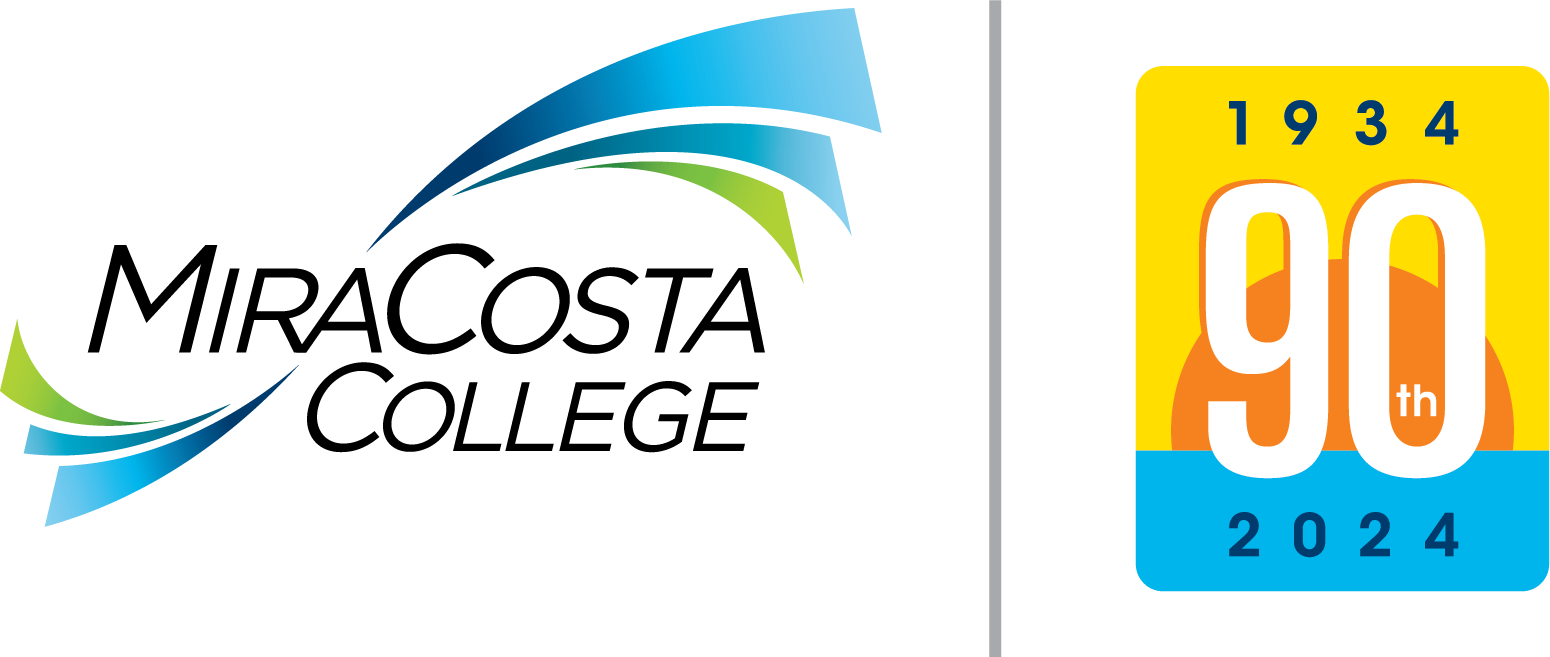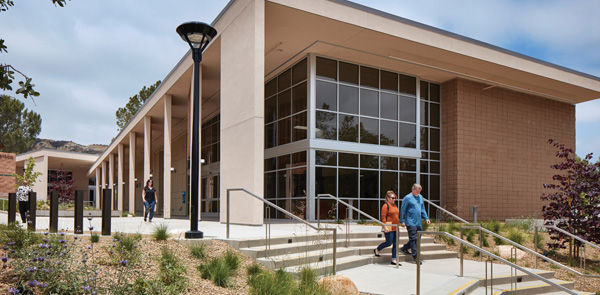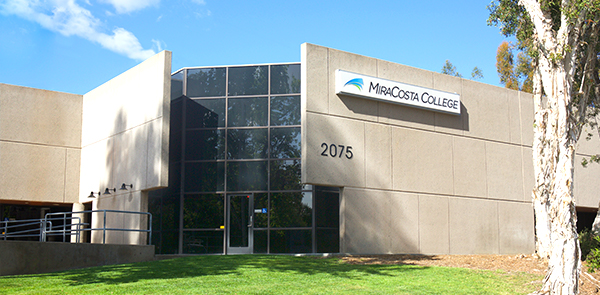Academic Accommodations, Fundamental Alteration, and Undue Burden
The following information is from the California Community Colleges Chancellor’s Office Implementing Guidelines for Title 5 Regulations.
Additional information related to Fundamental Alterations are included on the California Community Colleges Fundamental Alteration and Undue Burden website.
Section 56027 - Academic Adjustments
Each community college district receiving funding pursuant to this subchapter shall establish a policy and procedure for responding to, in a timely manner consistent with Section 53203 of this division, requests involving academic adjustments. This procedure shall provide for an individualized review of each request. The procedure shall also permit the Section 504/ADA Coordinator/Compliance Officer, or other designated district official with knowledge of accommodation requirements, to make an interim decision pending a final resolution.
NOTE: Authority cited: Sections 67312, 70901 and 84850, Education Code. Reference: Sections 67310-67312 and 84850, Education Code.
What Constitutes a Fundamental Alteration?
A "fundamental alteration" is a change that is so significant that it alters the essential nature of the approved course outline of record and the objectives of an individual course or course of study. Academic adjustment does not mean fundamental alteration.
There may be times that the student requests an accommodation that a professor believes may compromise the academic integrity or create a fundamental alteration of the course and/or program. In such cases, the college must objectively seek to determine whether an accommodation fundamentally alters the nature of a course. To undertake this process faculty and DSPS staff will need to work together to:
- Identify the essential academic standards of the course as delineated in the course outline of record rather than in a syllabus for a particular class. These requirements address the very nature of the subject matter and are of the utmost importance in achieving the course/program objective.
- Articulate specific requirements that individual instructors believe are fundamental to teaching the course/program.
- Identify the unique qualities of the course/program in relation to its overall objectives and any program in which the course is required.
- Engage in "reasoned deliberation" as to whether modification of an assignment, course/program would change the fundamental academic standards, and
- Determine whether there are any options to the fundamental requirements of the assignment, course/program. For example do all instructors teaching the same course have the same requirements?
- Why is the standard that the instructor believes will be lowered important to the course/program?
- Will the requested accommodation lower the academic standards of the course/program?
- Can a different method or requirement that will not be altered by the accommodation achieve the required academic or pedagogical result? Consult with peers on the DSPS listserv, CAPED or AHEAD for guidance. It is important to note that the fact that a requested accommodation has not been made before or is not typically being made, is not sufficient to constitute a fundamental alteration.
- The decision to assert a fundamental alteration and deny an accommodation should not be taken lightly. Institutions have found themselves in legal trouble for devoting insufficient thought to the conclusion that a requested accommodation should be denied. If the college seeks to be well prepared to address potential discrimination complaints, it is essential that a thorough, deliberative, fair, and well-documented process be undertaken to determine if a requested accommodation represents a fundamental alteration to the curriculum.
Answering the above questions and documenting the process will allow instructors to establish that they have carefully evaluated the awarded accommodation and the course/program objectives. Failure to provide a reasonable accommodation to a student with a disability is a violation of law, putting in jeopardy an institution's federal funding. However, disability laws also require that students with disabilities meet the "essential," "academic," and "technical" standards of the class/program/college.
Situation: A student who is blind enrolls in a math class and requests that the instructor verbalize what s/he is writing on the board or overhead.
Fundamental Alteration or Not? NO. Under the law and regulations, the faculty member would be legally required (as well as ethically obliged) to make an adjustment in presentation of course material by verbalizing what is written on the board or overhead. Pointing and referring to "this" and "that" as written on the board would not give the student with a visual disability equal access to the instruction. An added benefit is that verbalizing material rather than just writing it can assist all students because the information presented is more explicit.
Situation: A student with a reading disability requests that the instructor provide information about obtaining the textbook that will be used in an upcoming semester in a digital format.
Fundamental alteration or Not? NO. Faculty are expected to meet the bookstore deadlines for textbook adoption. This is not an accommodation as such. It is simply a request for information, but timely textbook adoption is critically important for students with visual or reading disabilities. In cases such as this, it is highly advised that classroom faculty to consult with the DSPS office for further assistance.
Situation: A student in the occupational therapy assistant program who has a specific learning disability must evaluate a patient with Cerebral Palsy, review clinical tests and plan an appropriate intervention in a timely manner. She has requested that she be allowed to bring brief written notes into the evaluation and have extra time to read and digest the materials and patient responses.
Fundamental Alteration or Not? No. A college should determine the appropriate or essential requirements for a course of study, not the licensing requirements. Once essential functions and technical demands have been determined, teaching methods and learning activities can be established. The student must be permitted time for a “learning curve,” like all other students. Allowing more time in a student’s learning would be appropriate, such as permitting extended or extra practice sessions, use of notes or tape recordings.
Situation: A student tells you that s/he cannot complete writing assignments, with or without accommodations. The student requests that writing assignments not be included in his/her grade.
Fundamental alteration or Not? POSSIBLY. If submitting writing assignments is an essential requirement of the class (for example, in English Composition!) there would be no legal mandate to comply with the student's request to exclude those assignments from the grade, and may then be denied. If this was another class such as psychology, the deliberative process described above should be used to determine the college’s response to this question.
Situation: A hospital program contends a deaf student can’t hear a pulse so he can’t take vitals which is an essential function of the clinical rotation.
Fundamental alteration or not? No. There are digital pulse readers so this accommodation must be considered, and with it a student can qualify to participate in their clinical rotation.
Situation: A student with a learning disability requests the use of a calculator and a multiplication table in a beginning arithmetic class. The instructor of the class is adamant that the accommodations should not be allowed. In his opinion, the ability to perform the actual calculations is a basic requirement of the class. The student asserts that they can do the analytical work but that sheer memorization is a disability related problem for them.
Fundamental alteration or Not? POSSIBLY. The key issue which needs to be analyzed to come to an appropriate conclusion is whether the ability to perform the arithmetic calculations without the stated accommodations is a fundamental academic requirement of the class. If it is a fundamental academic requirement, then the college would not be required to provide the accommodation. Critical factors to determine this include:
Is the ability to perform the arithmetic calculations with aids included in the course outline of record maintained by the college? If the ability to perform these functions, specifically without aids, is in the approved course outline of record, then the college may consider asserting that it is a fundamental academic requirement. It is not obligatory that they take this stance, but it may be an indicator of whether or not the function is a fundamental academic requirement.
If the ability to perform the function without aids is not listed, what is the practice of other instructors of the same class at the college or of instructors of similar classes or other colleges? If the practice regarding the use of aids such as a calculator and multiplication tables differs between instructors, it is difficult to assert that it is a fundamental academic requirement.
Documentation
This academic adjustments policy and related procedures must be readily accessible to students, faculty and staff of the college. For example: it should be accessible and available on the college website and in the college catalog as well as in the DSPS Office. In addition, the policy should be readily available upon request in alternate formats.
It is critical that the initial, interim and final response to request for academic adjustments, auxiliary aids and services disputes be examined in a timely manner and be documented along with timelines for responding.





